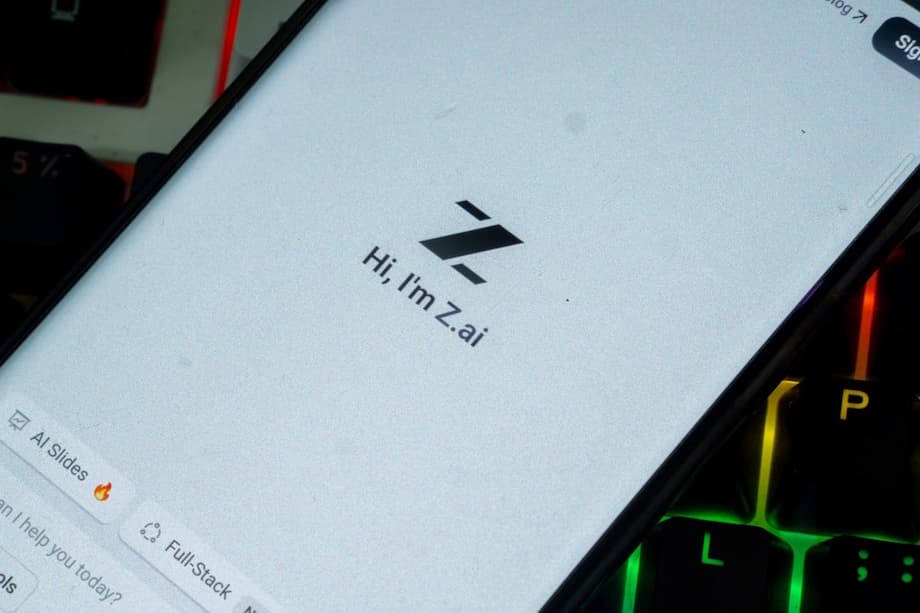Z.ai and Alibaba Cloud Launch a Free AI Agent for Smartphones
In a significant move that underscores the rapid evolution of artificial intelligence in China, Beijing-based AI unicorn Z.ai (formerly known as Zhipu) has partnered with Alibaba Cloud to launch a new, general-purpose AI agent for smartphones, tablets, and desktop computers. This collaboration brings a free, autonomous digital assistant to users on Android, iOS, and web platforms, aiming to transform how people interact with technology in their daily lives.
- Z.ai and Alibaba Cloud Launch a Free AI Agent for Smartphones
- What Is an AI Agent and How Does It Work?
- Alibaba Cloud’s Role: Powering the Next Generation of AI
- Why Is This Launch Significant for China’s AI Landscape?
- How Does Z.ai’s Agent Compare to Other AI Assistants?
- Technical Innovations: What Powers the Z.ai Agent?
- Broader Implications: The Future of AI Agents in Daily Life
- In Summary
The new AI agent is designed to handle a wide range of everyday tasks, from ordering food and making hotel reservations to generating multimedia content and managing documents. By leveraging Alibaba Cloud’s advanced AI infrastructure, Z.ai’s agent promises seamless integration and robust performance across devices, reflecting the growing competition and innovation in China’s AI sector.
What Is an AI Agent and How Does It Work?
AI agents are software programs capable of autonomously performing tasks for users or other systems. Unlike traditional digital assistants that respond to simple commands, AI agents can create and execute complex plans, breaking down goals into specific tasks and subtasks. They use available resources—such as apps, online services, and device capabilities—to achieve user objectives with minimal intervention.
For example, a user might instruct the Z.ai agent to “plan a weekend trip to Shanghai.” The agent could then search for hotels, book reservations, suggest restaurants, and even generate a personalized itinerary, all without requiring the user to manually handle each step. This level of autonomy is made possible by advances in natural language processing, machine learning, and integration with cloud-based services.
Key Features of the Z.ai Agent
According to Z.ai, the new agent can:
- Order food and arrange takeaway deliveries
- Book hotels and make restaurant reservations
- Generate videos and podcasts
- Install apps and process documents
- Respond to natural language instructions
These capabilities are available for free, making the agent accessible to a broad audience across Android, iOS, and web platforms. The agent’s cross-platform nature is particularly notable, as it allows users to maintain continuity and productivity regardless of their device of choice.
Alibaba Cloud’s Role: Powering the Next Generation of AI
Alibaba Cloud, the cloud computing arm of Alibaba Group Holding, is a major player in China’s technology landscape. Its Model Studio platform provides the backbone for Z.ai’s agent, offering access to advanced generative AI models such as Qwen3, Qwen-VL (for visual understanding), and the Wan series (for video generation). These models enable the agent to process text, images, audio, and video, supporting a wide range of user needs.
Security and privacy are central to Alibaba Cloud’s offering. All operations are performed in isolated virtual private cloud (VPC) networks, reducing risks associated with data breaches. The platform also supports real-time and batch model inference, user-defined parameter configuration, and performance monitoring, ensuring that the AI agent operates efficiently and securely.
Alibaba Cloud’s recent release of the Qwen3 agentic AI coding model further enhances the agent’s capabilities, allowing for deeper inference, faster processing, and support for complex, multi-step tasks. This technological foundation positions the Z.ai agent as a cutting-edge solution in the increasingly crowded AI assistant market.
Why Is This Launch Significant for China’s AI Landscape?
The partnership between Z.ai and Alibaba Cloud comes at a time of intense competition in China’s AI sector. Domestic tech giants and startups alike are racing to develop more sophisticated AI agents, with the goal of capturing a share of the rapidly growing digital assistant market. The launch of a free, cross-platform AI agent by two of China’s leading technology firms is a clear signal of the country’s ambitions in artificial intelligence.
China’s AI market is shaped by both innovation and geopolitical pressures. Some AI startups, such as Manus AI, have relocated operations in response to international tensions, while others double down on domestic partnerships. By joining forces, Z.ai and Alibaba Cloud are leveraging their respective strengths—AI expertise and cloud infrastructure—to create a product that could set new standards for digital assistance in China.
Expert and Industry Perspectives
Industry analysts see the Z.ai and Alibaba Cloud partnership as a strategic move to consolidate market share and accelerate AI adoption. As reported by SCMP, the collaboration reflects a broader trend of Chinese tech firms investing heavily in AI and cloud computing to remain competitive in the digital economy.
From a business perspective, the partnership is mutually beneficial. Z.ai gains access to Alibaba’s robust cloud services and distribution channels, while Alibaba Cloud enhances its AI portfolio and strengthens its position as a leader in cloud-based AI solutions. As noted by AInvest, “This partnership is a significant step in Alibaba’s strategy to enhance its AI capabilities and expand its market reach.”
How Does Z.ai’s Agent Compare to Other AI Assistants?
The global market for AI-powered digital assistants is highly competitive, with major players like Apple’s Siri, Google Assistant, Amazon Alexa, and Microsoft’s Copilot dominating in various regions. In China, however, domestic solutions often take precedence due to regulatory requirements and language support.
Unlike many Western AI assistants, Z.ai’s agent is designed specifically for Chinese users, with deep integration into local services and platforms. Its ability to autonomously perform complex tasks—such as generating multimedia content and managing documents—sets it apart from simpler voice assistants that primarily handle reminders, searches, and basic commands.
Other smartphone makers are also introducing AI-powered features. For example, OnePlus recently launched Plus Mind, an AI assistant that helps users organize on-screen information with a simple three-finger swipe. Google’s Doppl app uses generative AI to let users virtually try on clothes, showcasing the diverse applications of AI agents in daily life.
Platform Availability and User Experience
The Z.ai agent’s availability on both Android and iOS is a notable achievement, given the challenges of developing for multiple operating systems. According to Britannica, iOS is known for its security and strict app review process, which can pose hurdles for new entrants. Despite these challenges, Z.ai has managed to launch its agent across all major platforms, ensuring broad accessibility.
Apple’s App Store policies have come under scrutiny in recent years, with high-profile disputes involving companies like OpenAI and X (formerly Twitter). However, Apple maintains that its platform is designed to be “free and fair of bias,” and several rival AI apps have found success on the App Store. The launch of Z.ai’s agent on iOS demonstrates the growing openness of the platform to innovative AI solutions.
Technical Innovations: What Powers the Z.ai Agent?
At the heart of the Z.ai agent are advanced generative AI models provided by Alibaba Cloud’s Model Studio. These models support a range of modalities, including text, audio, and video, enabling the agent to understand and respond to complex user requests. The Qwen3 family of models, in particular, offers dual thinking modes that balance inference depth and speed, allowing for efficient handling of both simple and complex tasks.
Security is a top priority. All data processing occurs within isolated networks, and private network access is facilitated through Alibaba Cloud’s PrivateLink technology. This ensures that user data remains protected during storage and transmission, addressing growing concerns about privacy in the age of AI.
Model Studio also provides tools for agent development, prompt engineering, and functionality enhancement. This allows Z.ai to continuously improve its agent, adding new features and refining existing ones based on user feedback and technological advances.
Real-World Applications and Customer Success Stories
Alibaba Cloud’s Model Studio has already been adopted by major companies such as AstraZeneca, Shiseido’s Drunk Elephant, eSignGlobal, and ZKH. These organizations use the platform to drive efficiency and innovation, demonstrating the versatility and reliability of Alibaba’s AI infrastructure.
For everyday users, the Z.ai agent represents a new level of convenience. Whether booking a hotel, ordering food, or generating a podcast, users can rely on the agent to handle tasks quickly and accurately, freeing up time for more important activities.
Broader Implications: The Future of AI Agents in Daily Life
The launch of Z.ai’s AI agent signals a broader shift in how people interact with technology. As AI agents become more capable and autonomous, they are poised to take on an increasingly central role in managing daily tasks, organizing information, and even creating content.
Google’s recent study on AI energy consumption highlights another important aspect of this trend: sustainability. The study found that AI’s environmental impact is often overstated, with efficiency improvements reducing energy use and carbon footprint significantly. As AI agents become more widespread, their environmental footprint will be an important consideration for developers and users alike.
The proliferation of AI-powered apps—from virtual try-on tools like Google’s Doppl to organizational assistants like OnePlus’s Plus Mind—demonstrates the versatility of AI agents. As these tools become more integrated into smartphones and other devices, users can expect a future where digital assistance is seamless, personalized, and ever-present.
In Summary
- Z.ai and Alibaba Cloud have launched a free, cross-platform AI agent for smartphones, tablets, and desktops in China.
- The agent can autonomously handle tasks such as ordering food, booking hotels, generating multimedia content, and managing documents.
- Alibaba Cloud’s advanced AI models and secure infrastructure power the agent, ensuring robust performance and data privacy.
- The partnership reflects growing competition and innovation in China’s AI sector, with domestic firms investing heavily in digital assistants.
- The Z.ai agent stands out for its autonomy, cross-platform availability, and deep integration with local services.
- The launch marks a significant step toward more capable, sustainable, and user-friendly AI agents in everyday life.












